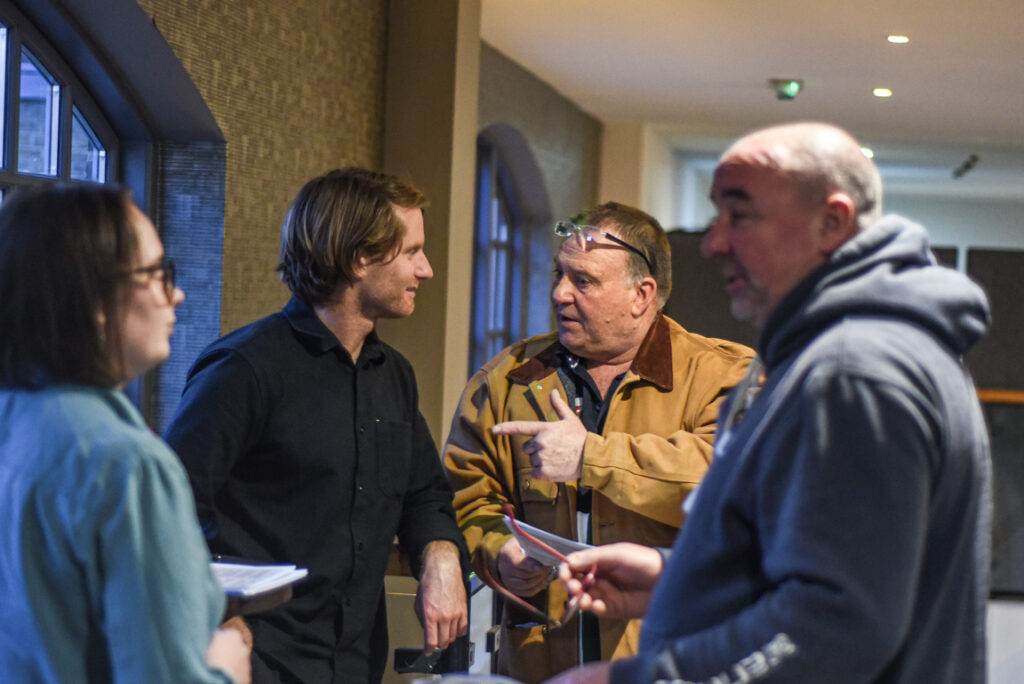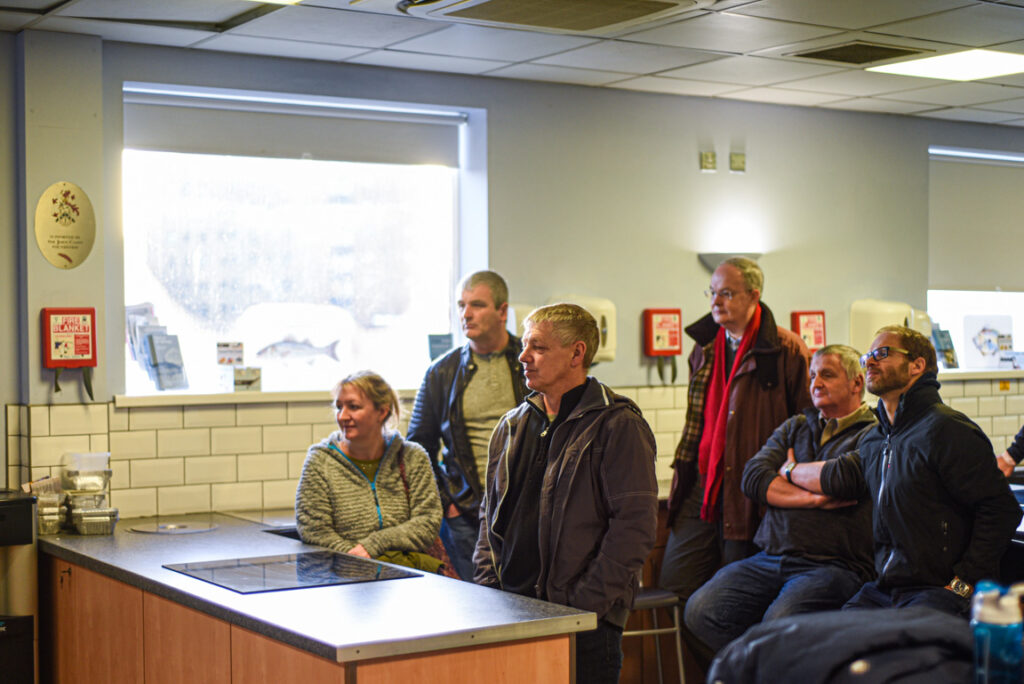

Join Fishing into the Future and the Fishmongers’ Company at the Future Towns Innovation Hub at the University of Southampton for an Industry-Science mixer on Tuesday 7th November at 6pm. The event presents a chance for people working in the fishing industry and marine science & technology sectors to connect and exchange ideas.
Use this opportunity to share your work, pitch collaborative research ideas, hear insights from people working in the fishing industry and build connections to develop ideas that support the science used in UK fisheries and marine policy.
Click here to apply. Applications close on the 9th October.
Event format
The aim of this event is to share knowledge and build connections between fishermen and people working in the marine research and technology industry – with a focus on developing ideas that support the science used in UK fisheries and marine policy. We will be hosted by the Future Towns Innovation Hub based at the University of Southampton’s Science Park, Chilworth. Fishing into the Future will be joined by a group of 20-30 fishermen and people working within the fishing industry, all with a shared interest in co-management and collaborative research. Using industry facilitators, you will have the opportunity to pitch research ideas and projects, and develop these ideas and gain insights through informal conversations.

This is part of a wider event hosted by Fishing into the Future at Chilworth Manor, the 3-day Fisheries Resource Education Programme – sharing expertise and building connections for fishermen, scientists and fisheries managers to work together effectively.
Why it’s important?
The value of involving industry and using the intimate knowledge and experience of fishermen has historically been side-lined in scientific research and fisheries management, despite industry being most directly affected by management decisions in terms of their economic livelihoods and well-being. The difficulty of bringing industry into the fold has ultimately impacted the sustainability of fisheries and has contributed to data deficient fisheries, poor research capacity and a siloed approach to conducting and developing fisheries science and management.

It is now widely accepted that industry, academia, and government all have unique contributions to fisheries research, and no single group can provide the information required to meet the increasing challenges of fisheries sustainability alone. Research that is collaborative (i.e., involving industry, academia, and government) will help to solve persistent and emerging problems in fisheries; effectively utilising the skillset of stakeholders; and help to build new capacity in fisheries science. Collaborative research also allows stakeholders to disseminate insight to a wider audience so that the science is effectively understood and accepted outside the scientific community.